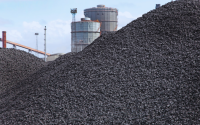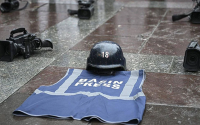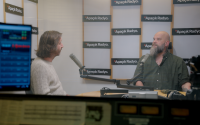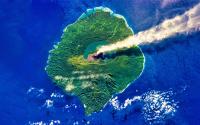Duncan CampbellTuesday August 19, 2003
It is always fascinating to see, from close up, how a country conducts its political affairs.
Thus it was a privilege to be present in the house of deputies in Buenos Aires when the historic vote to annul the immunity from prosecution of members of the military who had taken part in torture and killings during the "dirty war" of the late 70s and early 80s was taking place last week.
The first thing that struck me was that many of the deputies were smoking cigarettes. Coming from California, where smokers are regarded as barely better than torturers in terms of pariah status, it was remarkable to see the country's lawmakers cheerfully puffing away through what was an eight-hour session.
The interaction between the elected deputies, press and members of the public was also intriguing, and there was one particularly angry exchange during what was obviously a very emotional debate.
One deputy, Ricardo Bussi, was attacking plans to charge former members of the military, not least because his own father is one who has been named as having been involved. When he denounced the move, he was attacked verbally - not only by other deputies, a common enough sight in the House of Commons - but by the press.
Journalists beside me booed loudly, banged on the sides of the balcony from which we were watching, and called him a "son of a bitch" and other words that one would not want to put on a family website.
Another aspect of the session was the constant traffic of waiters bearing trays of coffee and infusions, which they delivered to the deputies, and even served free to the press.
One young woman near us, who had arrived to watch the debate, tried to attract one deputy's attention by holding up a sign with the issue she wanted him to raise.
When she failed to do so, she telephoned his colleague, sitting beside him in the chamber, on his mobile phone, and issued her request. He waved back in acknowledgement.
While the debate was going on, thousands of demonstrators supporting the end of immunity gathered outside the building. Photographs of some of the 10,000 to 30,000 young people who disappeared during that period were attached to the railings, with just their names and the dates on which they were last seen - 1976 and 1977 - attached.
What was striking was how young many of the demonstrators were. While some of them were the children of the "disappeared" and members of the organisation they have formed, HIJOS, most of the others had no family connections.
I spoke to a number who were students, and who were not even alive when all this was going on, but said that they thought it was important that what had happened was not forgotten.
Reading again of the techniques employed by the military at the time - maggots placed in infected wounds, a young woman tortured so horribly that she bit through her tongue - one wondered how such actions would ever be explained if the trials of those responsible ever finally take place.
What was heartening was the presence, both inside and outside the chamber, of people who, a quarter of a century ago, would have been prime candidates to be bundled into the sinister green Ford Falcons so often used by the military to grab their targets, never to be seen again.






